We’ve rounded up some of our favorite tips for creating small healthy habits that can add up to big health benefits over time. Each of these habits is something small and focused. They’re things that we’ve implemented in our own health journeys over the years.

1. Have A Hydration Plan.
Getting enough fluids, especially water, every day is essential in order to prevent dehydration. We’ve found that having a personal insulated water bottle with a straw near us throughout the day helps to encourage more water drinking. Also, we like to fill a big bottle of water and set it on our bed stands before going to bed. That way, it’s the first thing we drink when we wake in the morning.
To boost hydration even more, try making a pitcher of cucumber-infused water or consider adding an electrolyte to your water. LMNT is one of our favorite electrolytes and we wrote a review post explaining how LMNT works to promote better hydration.
2. Create A Reminder To Move.
Moving your body every day, especially if you have a desk job, is imperative to ward off long-term health complications. To make sure you get some dedicated movement in each day (walking is great), block off that time on your calendar just like you would any other meeting.
To inspire even more movement, consider the free at-home workouts from Nourish Move Love. We love these workout plans because they’re flexible for all types of movement (from beginning to advanced), require minimal equipment (if any), and can be done from the comfort of our homes.
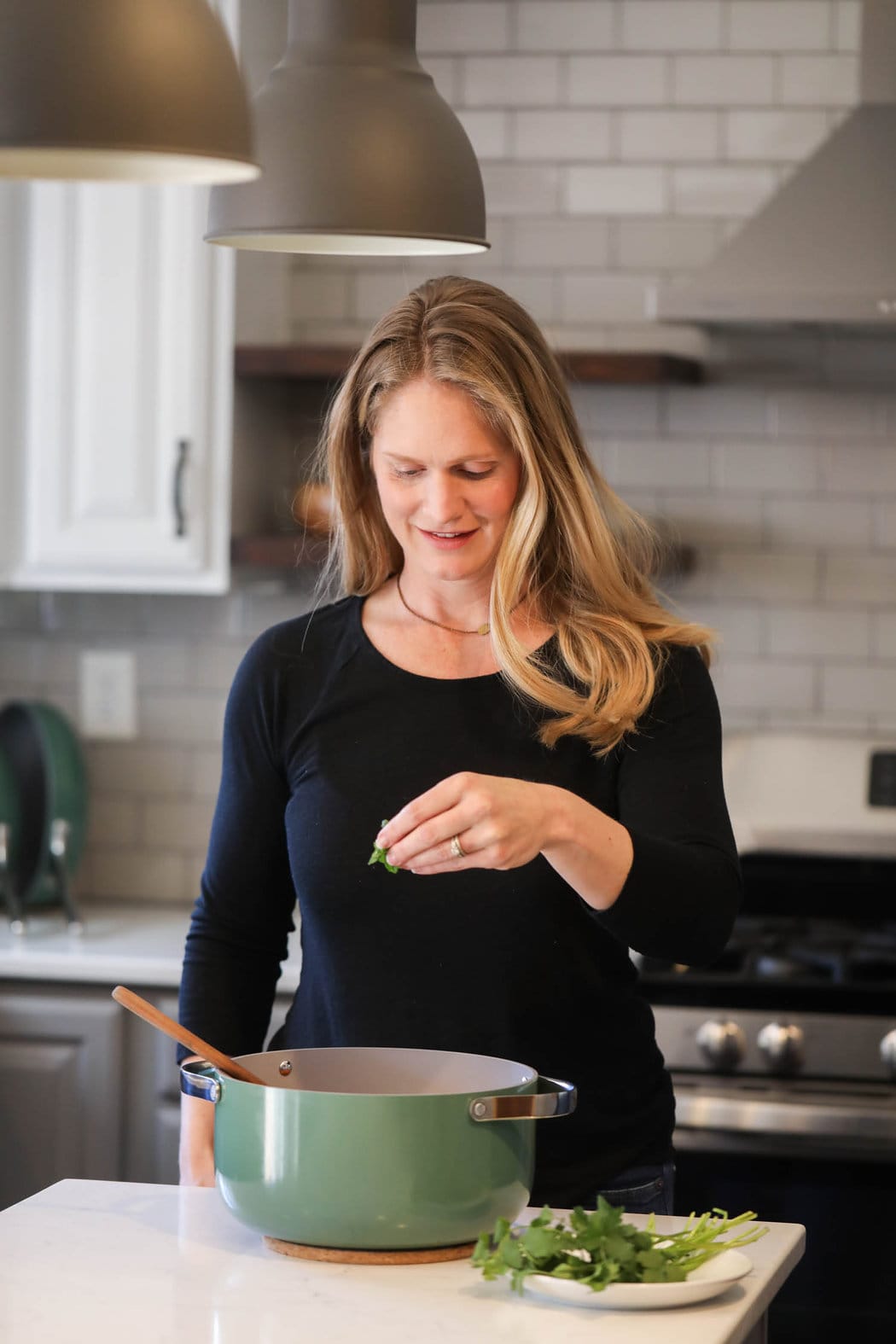
3. Plan Your Meals.
We’ve been meal planning for years – and reaping the benefits! In fact, this is one of our favorite easy healthy habits. When we plan our weekly menu, we eat more healthful, well-rounded meals, waste less food, spend less money on groceries and takeout, and even save time in the kitchen.
Set aside 30-60 minutes once per week (we typically meal plan on Saturdays or Sundays) to create a plan for your weekly dinners. Once you’ve mastered that, move on to write out your plan breakfasts and lunches, too. Post it in the kitchen for all to see.
If you’re not sure where to start with meal planning, we have many free resources designed to help you get started.
4. Get outside.
A breath of fresh air is good for your soul, body, and mind. Research shows that being outside and closer to nature can help us improve our thinking, reasoning, and other mental abilities. Being outside also encourages more physical activity, such as walking, gardening, and yard work. And getting outside, even if it’s just for 10 minutes a day, can also improve your sleep. If you have trouble falling asleep at night, try getting outside in the morning without sunglasses. This simple act can help boost your body’s natural production of melatonin (a sleep-promoting hormone) in the evening.
5. Laugh More.
Believe it or not, joy is a nutrient. And one of the best ways to get more joy in your life is to laugh more. Have you ever wanted to capture the good feeling you have after a laugh session? Research shows there are many short-term and long-term health benefits to laughing more.
Some tips for creating more laughter in your life:
- Surround yourself with images (a card or comic strip, for example) that is funny
- Spend time with friends, podcasts, books, and TV shows that make you laugh
- Don’t take yourself so seriously. Find a way to laugh about your own situations and watch your stress begin to fade away
- Consider laugh therapy, such as laugh yoga or a group laughing session where people practice the act of laughter
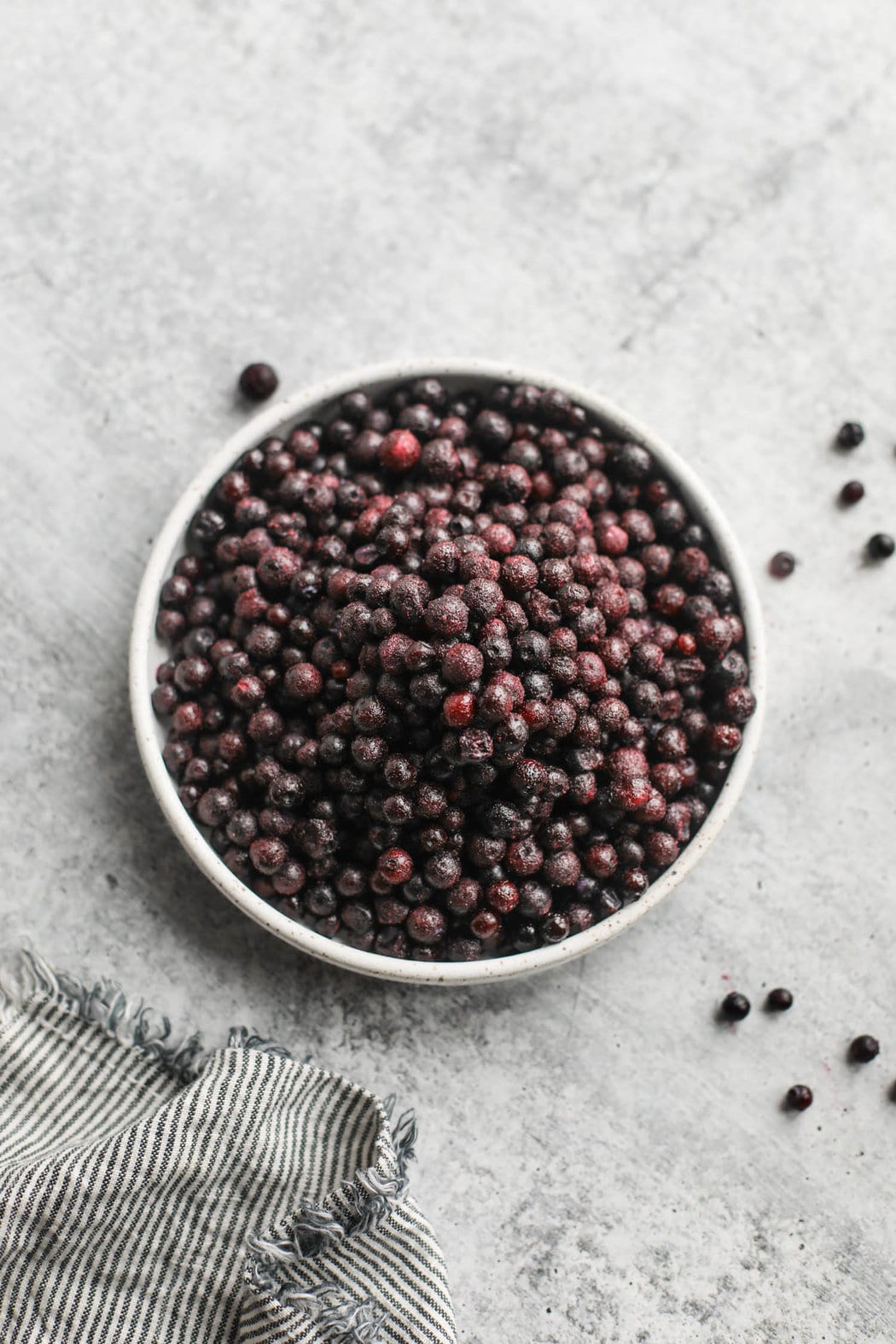
6. Shop For Anti-Inflammatory Foods.
Increasing your intake of foods that are top sources of antioxidants can help improve your long-term health, increase your energy, and help you avoid chronic disease. When you shop for groceries, aim to include more of these top anti-inflammatory foods in your cart:
- berries: blueberries, strawberries, raspberries, blackberries, cranberries
- leafy greens: romaine, radicchio, arugula, mustard greens, spinach, Swiss chard)
- tea: white, oolong, black, and especially green tea
- fatty fish: salmon, tuna, anchovies, mackerel, sardines
- nuts and seeds: almonds, Brazil nuts, cashews, chia seeds, flax seeds, pecans, and walnuts
- cruciferous vegetables: broccoli, kale, cauliflower, Brussels sprouts, bok choy
- olive oil: extra-virgin or cold-pressed
- gut-health promoters: yogurt, kimchi, kombucha, kefir, sauerkraut
- coffee: high-quality, mold-free coffee does more than boost your mood, it’s packed with over 1,000 powerful antioxidants
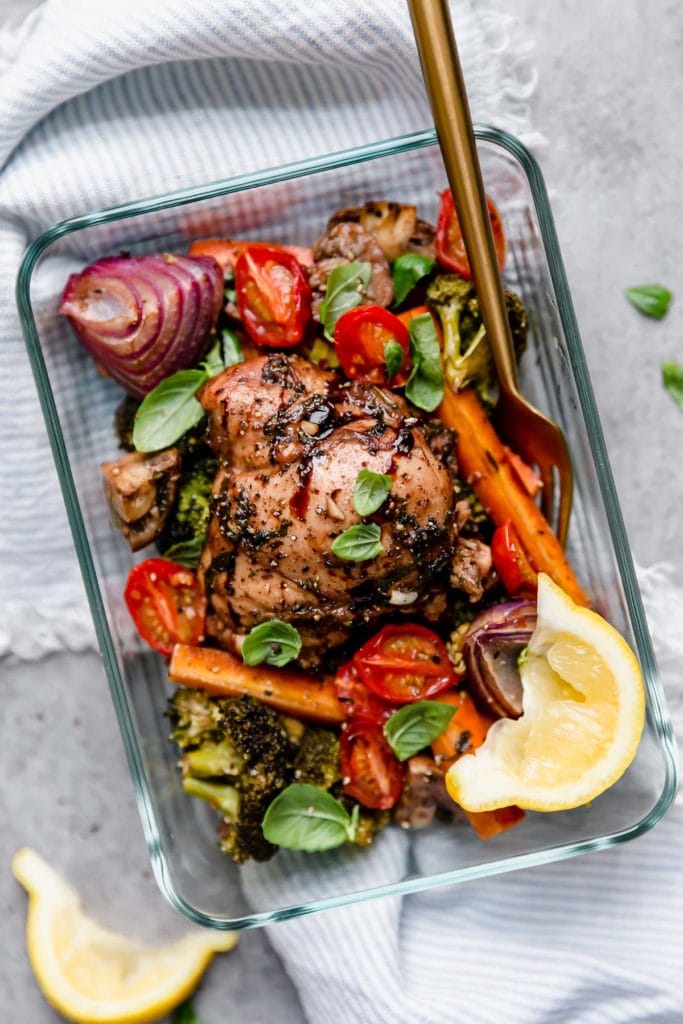
7. Remove Distractions When You eat.
You will enjoy your meals more, feel more satisfied from less food, and make healthier choices when you eat just for eating sake. If too many of your meals are consumed while you’re doing something else, consider this a healthy habit to focus on.
To remove distractions, turn off the television during meals and move your phone and computer away from the table. Focus on the foods you’re eating and the act of eating. Awaken all of your senses by noticing how your food tastes, smells, looks, and feels in your mouth. This is called mindful eating.
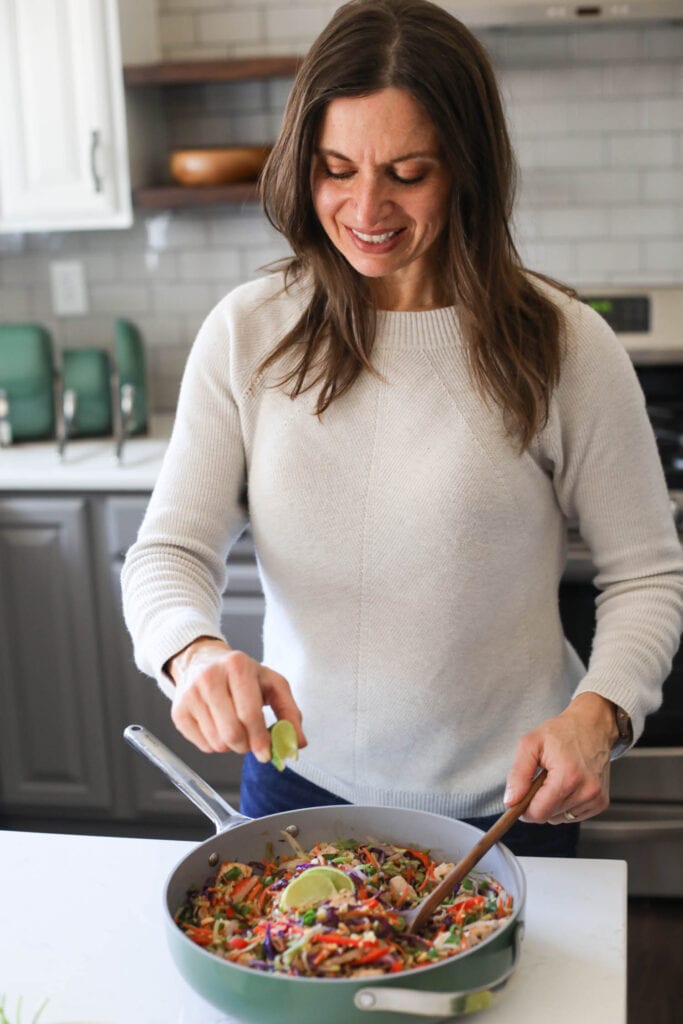
8. Get More Protein At Breakfast.
For many people, the first meal of the day is often lacking in protein. Consuming adequate amounts of protein can help manage appetite, build muscles, and improve bone health among other benefits. And, when you focus on getting more protein at breakfast, you’re more likely to meet your protein goals for the day. Here are some ideas:
- add collagen to your coffee or tea
- build breakfasts around eggs, breakfast meats, cottage cheese, or yogurt
- add protein powder (whey protein powder or plant-based protein powder) to a breakfast smoothie or baked oatmeal
- top avocado toast with an egg, smoked salmon, or cottage cheese
- try oat protein cereal (use code REALFOOD30 for 30% off your 1st order)
9. Unplug Earlier.
Does it ever feel like you’re “plugged in” to your devices at almost all hours of the day? Mental health experts cite the importance of unplugging and removing ourselves from access to our laptops, tablets, cell phones, and smart watches for at least a few waking hours every day. Additionally, the blue light emitted from devices has been shown to inhibit your body’s ability to prepare for sleep because it blocks the production of a hormone called melatonin, which makes you sleepy.
Start a habit of unplugging for the 1 hour before you go to bed, which comes with the additional health benefit of promoting better sleep.
10. Build A Bedtime Routine.
In the same way that you might establish a bedtime routine for your kids, create one for yourself, too! Start by dimming the lights in your home when the sun sets outside to signal your body that evening has begun. For a bedtime routine, elect a few things that help you unwind and repeat them in the same order every evening. Some ideas: read a book, sip on tea, fill a bottle with water so it’s ready to drink in the morning, set out workout clothes, or do a quick pick-up around your main living areas. Finally, try go to bed at the same time every night. Consistent sleep and wake times not only make it easier to naturally wake without an alarm, it can also make it easier to fall asleep.

How To Start A Healthy Habit
You don’t create a new habit just like that. In order for something to become second nature to you, you need to do some intentional planning, prepare for setbacks, and keep at it until the action becomes more routine to you.
For example, let’s say you want to create a habit to eat more vegetables.
Just like creating or breaking any new habit, eating more vegetables takes some strategy. And research shows that the best way to start new easy healthy habits is to tie them to an existing habit that you already have. Here are three examples …
- If you already have a good water-drinking habit, add a veggie snack (think raw cucumbers and carrots and hummus) to one of the times you fill your water cup every day.
- If you already have a good meal-planning habit, you can plan to include more plant-based main dishes or veggie side dishes with your meals during the week.
- If you already have a pizza dinner habit on Friday nights, add a salad to the mix. Start by having everyone down a salad serving before they have their first slice.
Another habit-forming strategy that works is to build actions that are craveable. If eating more veggies has you groaning, then you may not have found your favorite veggies yet (or a delicious way to prepare veggies). You can’t go wrong with a little texture. Start by tossing carrots, broccoli, green beans, sweet potatoes (or any veg that sounds good to you) with some olive oil, salt, and pepper. Spread it on a baking sheet and roast in a 400-degree oven until it is lightly charred, 10 to 20 minutes.
We also love this report published in Harvard Business Review outlining what it takes to build an easy healthy habit.

10 Easy Healthy Habits To Implement This Year
As a recap, here are our top suggestions for easy places to focus in order to improve your health in the new year. Start by tackling one of these easy healthy habits – the one that seems simplest to you right now. Then, after you’ve successfully implemented it, move on to another one. Which of these easy healthy habits do you want to start first?
- Have a hydration plan.
- Create a reminder to move.
- Plan your meals.
- Get outside.
- Laugh more.
- Shop for anti-inflammatory foods.
- Remove distractions when you eat.
- Get more protein at breakfast.
- Unplug earlier.
- Build a bedtime routine.
For ultimate success, we highly recommend reading the tips in the full blog post above. All photos and content are copyright protected. Please do not use our photos without prior written permission. If you wish to republish a recipe, please rewrite the recipe in your own unique words. Link back to the source recipe here on The Real Food Dietitians. Thank you!
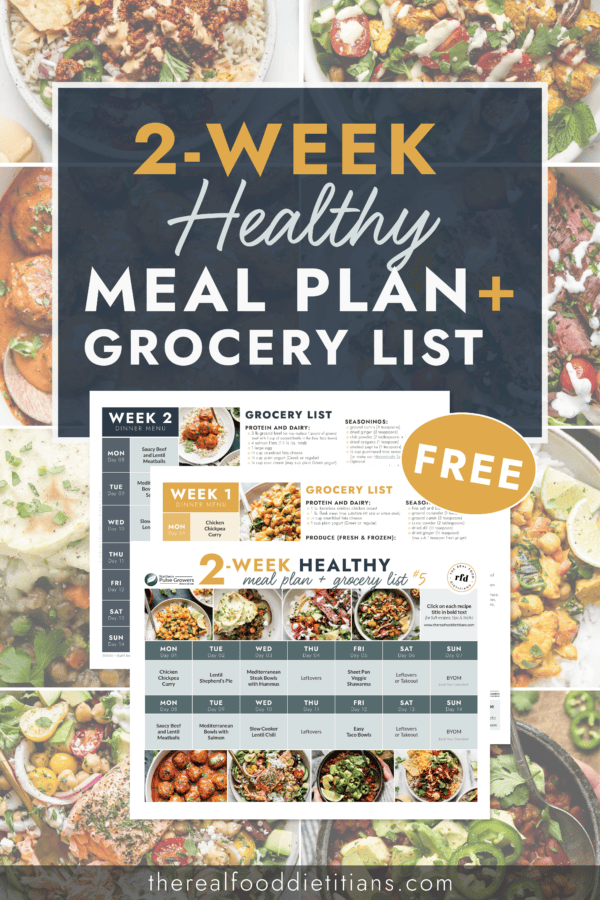




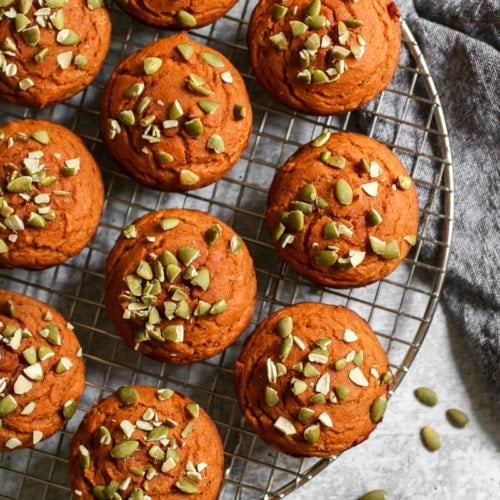

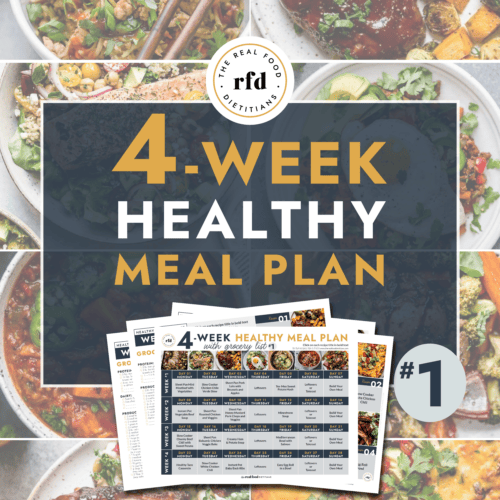
I am loving all of the ideas. I bought the cook book for myself and my best friend for Christmas, and have already done the egg roll in a bowl. Looking forward to more recipes. Thankyou.
Hi Valerie, we are so happy to hear that, and THANK YOU for purchasing our cookbook AND gifting it to a friend. Your feedback and support means so much to us!
This is a great article. I like to start with one new habit for a week and see how I can fit it in, tweek it and see if it works for me before adding another. That really helps me break it down realistically and get in the groove. When I try to do too many at once, I fail and then instead of looking at what little I accomplished, I just ditch it all and go back to the old habits. Good luck to everyone.
Hi Dee, we’re so glad you’ve found this article helpful. And yes, your strategy to implement one at a time is wise!